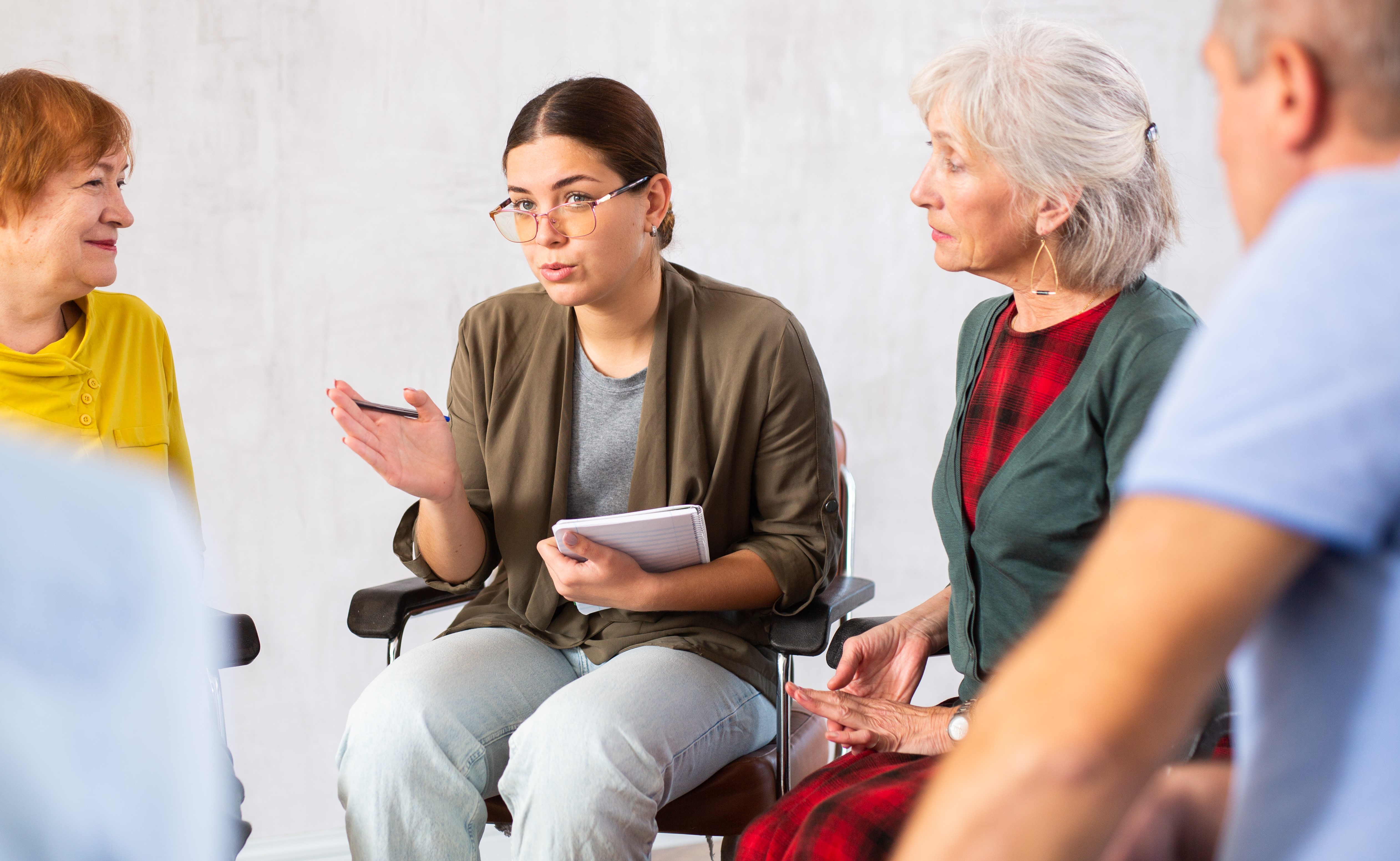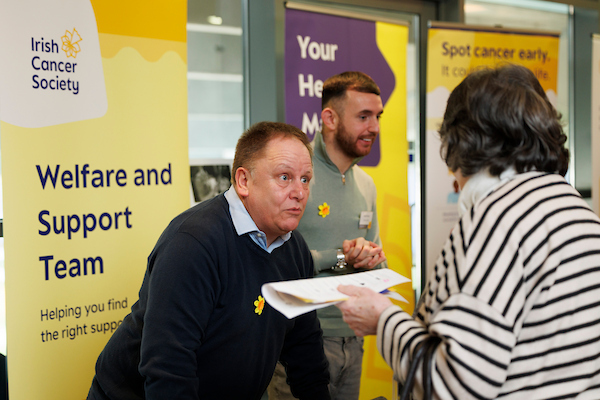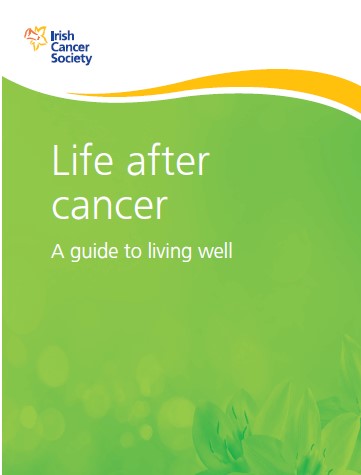Neuroendocrine tumours (NETs)
After treatment
What follow-up do I need?
After your cancer treatment has ended, you will still need regular appointments with your cancer specialist. This is called follow-up. Your doctor will discuss your follow-up plan with you.
Make sure you understand your follow-up plan and have a phone number to contact if you have any queries.
Follow-up may involve having physical exams, blood tests, and scans.
Ask any questions you have, and to let your doctor know if you are having any problems. Tell them about any new symptoms, aches or pains you have, or if you are finding it hard to cope. It can help to write down what you want to say beforehand, so you don’t forget anything.
If you are between check-ups and have a symptom or problem that is worrying you, call your specialist nurse for advice or to arrange an earlier outpatient appointment if necessary.
If you become suddenly unwell and can’t contact your specialist nurse or hospital team, go to your GP or the emergency department at the hospital.
Why follow-up is important
It’s important to go to your follow-up appointments so your doctor can check for signs of the cancer coming back (recurrence) and help with any side-effects that you may have. They can also check for new side-effects that may develop after you have finished treatment. It is best to be aware of these as early as possible so that suitable treatment can be given.
Life after treatment
The end of treatment is a time when people often expect to feel relieved, happy and able to get on with life again, but it can take some time to adjust and for your body and mind to recover.
We have information to help you with:
- Side-effects
- Your feelings after treatment
- Living a healthy lifestyle
- Financial and practical matters
LACES after-treatment workshop

Join our Life and Cancer – Enhancing Survivorship (LACES) programme when you have finished treatment or started maintenance therapy.
This workshop covers topics such as diet, exercise, wellbeing, finance and self-management and gives information on support and services to help you.
Living with a NET
For many people, having a NET is a long-term condition. Most people have a good quality of life living with a NET, but it may take a bit of time to adjust. It is important to learn how to live with your condition and keep yourself as comfortable as possible.
- Learn about NETs so you understand your treatment and know what to expect.
- Don't be afraid to ask questions. The team will be happy to answer them.
- Keep all your appointments. Put reminders in your phone or calendar or use notes in visible places so that you don’t forget.
- Let your doctor know straight away if you have any new symptoms or any symptoms that are bothering you.
- Don't feel like you have to wait until your next appointment if you have any health problems or worries. Get a name and number from the hospital so you know who to contact if you have any worries or questions.
It’s important to take any medication as prescribed, even if you feel well. Ask your doctor or pharmacist if you have any questions about your medication.
Depending on your type of NETs, you may need to keep a regular medication schedule or take medication before and after you eat. You may need to keep a supply of some medications with you when you are away from home. It can be hard to adjust to this, but keeping reminders on your phone or using a pill dispenser can help.
- Watch out for any signs of infection or other problems and contact the hospital straight away if you have any symptoms that are troubling you.
- If you need treatment for another medical condition, tell the person treating you that you have a NET and about any medication you’re taking.
- Have regular dental and eye check-ups. Take good care of your mouth, teeth or dentures, as they can be a source of infection.
- Check with your medical team before having dental treatment and let your doctor or nurse know if you have any discomfort or pain in your mouth. If you have carcinoid syndrome or are taking bone-strengthening drugs, tell your dentist before you go for checks or treatment.
You will probably be advised to get the flu vaccine each winter and the pneumonia vaccine every 5 years. Some vaccinations may not be suitable for you, if your immune system is low. For example, live vaccines. Ask your doctor about any vaccinations you should have and make sure you get them.
If you can, eating well when you have a NET may help you feel better.
Some types of NETs and some treatments can result in low levels of certain vitamins and minerals. In most cases, your dietitian and medical team can request blood tests to check your levels.
It is important that you only take supplements following advice from your dietitian or medical team. It is not advised to take high doses of any single or multivitamins or minerals due to the potential risk of toxicity.
Taking some exercise is one of the best things you can do to feel as well as possible. It can:
- Improve fatigue and other side-effects
- Increase your energy levels
- Help anxiety and depression
- Improve your mood and quality of life
- Help you to keep a healthy weight
- Strengthen your muscles, joints and bones
- Help with coordination, balance, stamina
- Reduce the risk of other health issues
Talk to your doctor about becoming more physically active. They can tell you what is safe and suitable for you and may be able to recommend a special exercise programme.
Exercise and carcinoid syndrome
If you have carcinoid syndrome, certain activities may trigger symptoms, so talk to your doctor about this.
Living with a NET and coping with any symptoms can be stressful.
The following may help:
- Try to avoid additional stress wherever possible. Spend time with your friends and family. Make time to relax and do the things that you enjoy.
- Use stress-management techniques if you do feel stressed. Try complementary therapies and relaxation techniques like yoga, meditation, mindfulness or aromatherapy.
Read more about [complementary therapies]. - Counselling or a short course of medication may also help you,
if you are finding it hard to cope.
Read more about [counselling].
Having the support of loved ones, healthcare professionals and other people going through a similar diagnosis can also make a big difference.
There are other people like you and many groups that want to help and support you. Sharing experiences and advice can be helpful.
NET Patient Network is a patient support and advocacy group for NETs patients in Ireland. It provides information on NETs and organises patient support meetings. You could also join our online community.
Once you are on treatment and start to feel well, you should talk to your doctor about returning to work or study and getting back to everyday life.
If you are planning a holiday once your NET is under control, ask your doctor about any special precautions you need to take, supplies you need to bring and vaccinations you should have before you go. It's best to have travel insurance too.
We have more information on holidays and travel.
Fatigue
- Fatigue is common with cancer. Tell your doctor if fatigue is affecting you, so that they can help you. We have tips to help you cope with fatigue.
Diet-related symptoms
- There is no single diet recommended for everyone with a NET. But some symptoms can be improved with diet. Tell your medical team if you have symptoms such difficulty digesting fats (steatorrhoea), diarrhoea or weight loss. They can refer you to a registered dietitian.
Stress, exercise and certain foods can trigger carcinoid syndrome symptoms. In time you will learn what affects you and how to manage. For example, strenuous activities, large meals, getting stressed or certain foods may lead to symptoms.
It may be helpful to keep a food diary to see how these or other foods affect you, to try to identify possible triggers. If you are making changes to your diet, it is important to work with a dietitian to ensure that you are not missing any key nutrients.
It is important to ensure that your diet has increased amounts of protein foods and niacin if you have carcinoid syndrome, as levels of both of these can become low.
Some suggestions include:
- Having at least 4 sources of high-protein foods daily. For example, fish, poultry, lean meat, eggs, dairy foods, beans, lentils, tofu, nuts and seeds.
- Ask your doctor or dietitian about taking a daily niacin-containing tablet and for recommendations about the best one to take.
What if the cancer comes back?
Sometimes cancer does come back, even after successful treatment. Cancer cells may remain in your body and grow again, although your doctors do all they can to prevent this.



Talk to a Cancer Nurse

Support Line
Our Daffodil Centres


